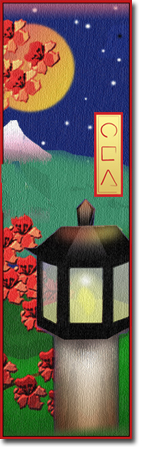On The Way: The Daily Zen Journal
Handbook for Zen Students – Part 2
Sosan (1564-1579)
From the preface:
Although I am not worthy of the task, I am intent on the study of the ancient teachings and consider the sacred writings of the sutras to be a great treasure. But these writings are nonetheless numerous as leaves in thick foliage and the sea of the Tripitaka is vaster than the ocean.

It seemed that later on others of the same intention would surely not be able to avoid the labor of picking through the leaves one by one, so from among the writings I selected several hundred maxims which are the most important and to the point and wrote them down in one place.
The result can well be called concise, yet complete in meaning. If one were to take these maxims as one’s stern teacher, study thoroughly, and attain their true meaning, then there in each sentence would be a living Buddha. Do your best!
But as for a single statement which would go beyond words, an extraordinary treasure, it is not that I would not use it; it is just that I would rather reserve it for a special opportunity.
7. I have “one word.”
Cutting off thinking and forgetting karmic connections, sitting motionless with no occupations: when spring comes, the grass turns green by itself.
Comment: Cutting off thinking and forgetting karmic connections is attaining it in the mind. This is what is called “the person of the Way at ease.” Ah! This is what kind of person s/he is: From the beginning without karmic connections or things to occupy, when hunger comes s/he eats and when tiredness comes s/he sleeps. Among the blue streams and green-covered mountains s/he wanders as s/he pleases; in the fishing villages and wineshops, s/he is at ease with no hindrances. Though s/he is completely unaware of the calendrical succession of years and months, when spring comes, the grass turns green by itself, as it always has.
This section sets apart those who wish to reflect inwards with concentrated thought (one thought).
8. The Doctrinal paths only transmit the Dharma of One Mind, and the Zen path only transmits the Dharma of Seeing Nature.
Comment: Mind is like the substance of a mirror; nature is like the mirror’s light. Nature is naturally pure and clear; in an instant of cutting through and realizing it, one returns to and attains original mind.
This section shows the hidden importance of the one thought in which realization is attained.
There are two kinds of mind. The first is original source mind; the second is the mind which ignorantly clings to forms. There are two kinds of nature. The first is original Dharma nature, the second is nature in which nature and form are in opposition.
Therefore among Zen and Doctrine followers alike there are those who are deluded; they hold onto names and think up explanations. At times they take what is shallow to be deep; at other times, they take what is deep to be shallow. They make insight and practice into a great illness. Therefore here the distinction is made clear.
9. When the Buddhas expounded the sutras, they first distinguished the various principles of Dharma, and only later expounded Ultimate Emptiness. When the patriarchs make a statement, however, no traces remain in the intellectual realm, and truth appears from the mind’s source.
Comment: Since the Buddhas are the ones to be depended on throughout the ages, it is necessary for them to explain Truth in detail. Since the patriarchs save and liberate others in their own time, their objective is to cause profound realization.
“Traces” refers to the traces of the patriarch’s word; “intellect” refers to the intellectual realm of the student.
10. The way the Buddha expounded was like a bow; the way the patriarchs expound is like a bowstring. Even when the Buddha expounded unobstructed Dharma, it just barely returned to the one flavor. If one brushes away the traces of this one flavor only then does the One Mind which the patriarchs show appear.
Therefore the student should first, in accordance with the true words of the Doctrine, clearly discern that the two principles of immutability and changing-with-conditions are respectively the intrinsic nature and manifested form of one’s own mind and that the two paths of sudden enlightenment and gradual cultivation are the beginning and the end of one’s own practice.
Only then should the student put aside doctrinal principles, and only get hold of the one thought that is appearing before one’s own mind, carefully study the purport of Zen. Then surely one will have what is there to be attained. This is called the way to get out, the road to life.
Comment: This restriction does not apply to those who have a superior capacity and great wisdom. But those of average or less than average capacities may not skip over any steps of understanding Doctrine.
The Doctrinal principles of immutability and changing-with-conditions and sudden enlightenment and gradual cultivation contain the distinction of “before” and “after.” But in Zen Dharma, in the midst of one moment of thought, immutability, and changing-with-conditions nature and forms, and substance and function all fundamentally belong to one time. Abandoning identity, abandoning different—this is the identity of difference and identity.
Therefore the great masters of the Zen sect, relying on Dharma and abandoning words, just directly point at one thought in order that one may see nature and become Buddha. It is in this way that Doctrinal principles are put aside.
Sosan (1520-1604)
Source – Thousand Peaks Korean Zen- Tradition and Teachers by Mu Soeng Sunim 1987





If one were to take these maxims as one’s stern teacher, study thoroughly, and attain their true meaning, then there in each sentence would be a living Buddha.
In this excerpt, some of the maxims do seem like quite a stern teacher, at times abstruse and challenging to understand. Since we know there were many teachings given over the Buddha’s lifetime addressing the many different capabilities of his listeners, perhaps some of the above was directed to those other students!
Spiritual practice is filled with paradox and irony. We operate in the “changing-with-conditions” reality attempting to become one with “immutability.” We use limited language and limited sense organs and try to push our way through them to freedom. All the while finding that what seems like an undeniable ideal of practice can become its opposite. And, all the while, creating karma in our wake.
Hence, the maxim “Great effort, no goal” in practice. And the realization that our efforts are best offered with a sense of “controlled folly.” Take what you can apply and “do your best.”
Onward up the mountain,
Elana, Scribe for Daily Zen